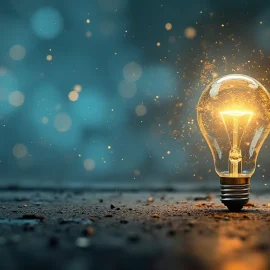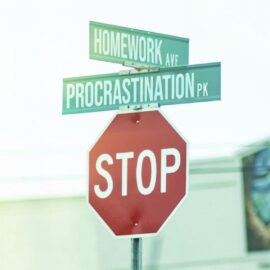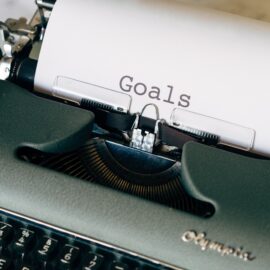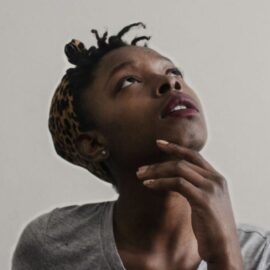
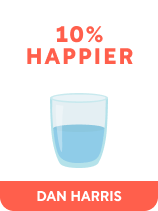
This article is an excerpt from the Shortform book guide to "10% Happier" by Dan Harris. Shortform has the world's best summaries and analyses of books you should be reading.
Like this article? Sign up for a free trial here .
How did author and former news correspondent Dan Harris go from being a meditation skeptic to writing a book on mindfulness? What sparked his change in mindset?
Dan Harris is best known for his on-air panic attack that sparked his long journey from drug addict to self-help author. Dan Harris’s meditation and mindfulness book, 10% Happier, explores his personal journey while providing the advice he learned along the way. Harris hopes to help others overcome anxiety and addiction by providing instructions for easy, everyday meditation practices.
Continue reading for an overview of Dan Harris’s journey.
Background on Dan Harris
In 10% Happier, Dan Harris asserts that anyone can benefit from a mindfulness practice. He uses his own experience of overcoming his skepticism about self-help programs as evidence, and he argues that meditation is a simple way to improve your life—no start-up fees or large time commitments necessary. Harris—a retired American journalist, former ABC News correspondent, and writer—writes that meditation can help you change your relationship with your ego, become more compassionate, and confidently navigate your career.
Published in 2014, 10% Happier aims to demystify meditation and motivate you to be more mindful. His advice is helpful for people who are skeptical about self-help, beginners to Buddhist concepts, and anyone looking to balance mindfulness with their career.
Harris breaks down his understanding of mindfulness, meditation, and Buddhism. First, we’ll discuss what factors caused him to seek help, such as work stress and problems with his ego. Then, we’ll explore Harris’s understanding of mindfulness. We’ll also explain meditation, its benefits, and how you can get started. Finally, we’ll debunk some common misconceptions about mindfulness by explaining why it won’t make you less successful at work or turn you into a pushover.
Harris’s News Career
Harris’s career in news brought him both success and stress. The news environment was competitive and fast-paced. Harris was ambitious, working hard to cover important stories. He worried excessively, letting his mind run through worst-case scenarios and potential outcomes. At the time, he believed this kind of worrying helped him in his career by predicting outcomes so that he could make the best moves professionally.
(Shortform note: According to a 2002 study, there’s a name for the worry Harris experienced: career anxiety. This is the worry that you feel at the start of a new job, when learning a new skill, or when thinking about your long-term career success.)
His work also brought him into contact with traumatic events (such as 9/11 and the wreckage of bombed cities), which affected him psychologically. After he started experiencing unexplained health problems, a doctor prescribed antidepressants—but instead, Harris self-medicated with illegal drugs.
(Shortform note: In The Body Keeps Score, Bessel van der Kolk explores the negative effects of trauma. Van der Kolk describes how even small triggers can cause a fight-or-flight response in trauma victims. This constant hypervigilance can manifest in the body and hinder the victim’s social and emotional health. Additionally, trauma is often misdiagnosed as mental illnesses like depression and anxiety—and the misdiagnosis can worsen negative effects. Treatment for trauma includes therapy, support groups, and physical experiences like yoga.)
On-Air Panic Attack
All of these factors—Harris’s career anxiety, traumatic news coverage, and drug use—culminated in a panic attack on a nationally televised news program. Harris felt ashamed about the incident and worried that it would negatively impact his career. Soon after, he consulted a psychiatrist, who confirmed the earlier diagnosis of depression and prescribed anti-anxiety medication to prevent more panic attacks. Harris started taking the medication but also continued partying and using illegal drugs. A year later, Harris had a second on-air panic attack that mirrored the first one. He realized that if he couldn’t control his panic, even while on prescription medication, something needed to change or his career was in jeopardy.
| Crises and the Search for Meaning Harris’s on-air meltdown served as a catalyst for him to change his behavior. Many other self-help books and fables explore this theme of crises and the search for meaning. It often takes a sudden, unexpected emergency for people to seek change and meaning in their lives. -In The Monk Who Sold His Ferrari, Robin Sharma tells a parable about Julian, a once successful lawyer, and the lessons he learned from his spiritual journey. During a trial, Julian suffered from a heart attack, sparking his self-improvement journey. -In When Breath Becomes Air, Paul Kalanithi’s lung cancer diagnosis sparked his journey of self-discovery as he struggled to understand the meaning of life and death. -In The Miracle Morning, Hal Elrod discusses how a devastating car accident—that stopped his heart for six minutes—changed his life. He realized the only thing to do when encountering adversity is to focus on having a fulfilling life going forward. He chose to be grateful for what he had and to take responsibility for creating the life he wanted. |
Ego Problems
Harris explains that not long after his battle with career anxiety, trauma from journalism, drug use, and on-air panic attacks, he came across philosophies outlining people’s relationship with their own egos—a line of thinking that helped him recognize what was holding him back from psychological healing.
At the recommendation of his coworker, Harris bought a copy of A New Earth: Awakening to Your Life’s Purpose by Eckhart Tolle. Tolle’s thoughts on what our ego is and how it affects our behavior helped Harris see how he could move beyond his problems.
Tolle defines our ego as our internal voice or narrator. Tolle’s definition of ego differs from many people’s typical understanding of ego, as he doesn’t define it as pride or arrogance. Nor does he define it in the way that Freudian psychiatrists do, as the part of our psyche that regulates our emotions. Instead, Tolle defines ego as our use of “I”: It’s how we talk to ourselves about ourselves, others, and the world around us.
Tolle notes that, often, this inner voice is negative, causing us to be judgmental and insensitive. Unless we are mindful and aware of our egos, our thoughts and actions are driven by this negative internal voice, which is the source of much of our unhappiness and stress.
| Insights From Ego Is the Enemy In Ego Is the Enemy, Ryan Holiday discusses additional ways that our egos can prevent us from finding success. Unlike Tolle’s idea of ego, Holiday’s definition includes both our inner voice and the traditional idea of ego as arrogance or pride. Holiday contends that our ego can actually get in the way before, during, and after our success. He believes this is due to the ego’s interference with how we think, act, and react. Thoughts: Holiday contends that our egos lie to us through our thoughts, creating a false sense of what we’ve accomplished. Having inflated self-esteem without anything to back it up can hinder us from actually achieving something great. To conquer your egotistical thoughts, Holiday advises that you should stop being prideful, stop thinking about yourself, and stop talking about yourself. These habits drain your energy and waste your time. Actions: Our ego can prevent us from doing the right things, leading us to choose recognition over accomplishment. Recognition will get you external approval, while accomplishment will satisfy your own sense of success. Holiday recommends that you be logical and purposeful when pursuing your passion, and that you commit to constantly learning. Reactions: According to Holiday, our ego distorts how we see ourselves and other people, causing a sense of superiority (in a similar way to how Harris says ego compels us to compare ourselves to others). This can interfere with our interactions with people, preventing us from developing meaningful relationships that can help us in our personal and professional lives. To counter this tendency, Holiday advises that you find a mentor, a mentee, and a collaborator or competitor to help you commit to being a lifelong student. These people will aid you in different ways as you learn, which can help keep your ego in check. |
Mindfulness
After discovering Tolle’s ideas on egos, Harris explored the philosophies of other self-help experts, who led him to the discovery that the antidote to the ego—which focuses on the past or future—is mindfulness, which focuses on the present. He explains that mindfulness occurs when you are aware of the present moment and the feelings or sensations that you’re experiencing. Additionally, he notes that an important aspect of mindfulness is not just awareness, but an emotional detachment. You aren’t attached to your feelings or sensations, so that they don’t affect you.
According to Harris, many self-help gurus advocate for mindfulness because it will prevent you from passively floating through life. Mindfulness will make you thoughtful and intentional in your approach to everyday life, especially in the face of impermanence, or the knowledge that your life is finite. Harris believes mindfulness allows us to embrace the limited time we have by teaching us that the only time we actually have is the present moment.
| Insight From Mindfulness in Plain English Harris describes mindfulness as being fully in the present moment. If that seems vague, the Buddhist monk Bhante Gunaratana explains why. In Mindfulness in Plain English, Gunaratana describes mindfulness as “presymbolic,” meaning it’s a concept that exists beyond the language or symbols used to represent it. He describes a few characteristics of mindfulness: -Mindfulness is non-conceptual awareness. This is awareness of concepts before you turn them into concrete thoughts. -Mindfulness is non-judgmental awareness. You can’t be aware if you’re judging all of the stimuli around you. -Mindfulness is awareness of change. However, while it watches this change, it doesn’t comment on the change. Gunaratana argues that mindfulness is not the same as concentration. Unlike mindfulness, which should have an element of ease, concentration requires effort and force. |
Meditation
As Harris tried to implement mindfulness into his life, he came across the ideas of Mark Epstein, a psychiatrist who took a practical approach to Buddhism. Epstein became a mentor to Harris and recommended he try meditating.
After initially resisting this advice, Dan Harris tried meditation and discovered that it was the actionable advice he was looking for. Meditation gave Harris the tools he needed to address his ego and ease his excessive worrying at work. After fully committing to practicing meditation, Harris became a more mindful and compassionate person.
If mindfulness is the goal, meditation is the tool needed to create it. Harris explains that meditation is a technique that helps you be mindful and focused on the present. The most common type of meditation teaches you to return your focus to your breath when your mind wanders, just as mindfulness teaches you to come back to the present moment when your ego and emotions try to distract you. By dedicating time to practicing mindfulness through meditation, you’ll eventually become more present in your everyday life.
According to Dan Harris, meditation also teaches you to recognize when your ego—your internal voice—is talking. It allows you to step back and identify your thoughts as just thoughts. However, meditation isn’t about not thinking or completely clearing your head—it’s about realizing that you’re thinking. Harris explains that distractions are inevitable during meditation, even for experienced meditators, so don’t let this discourage you from practicing.
| Counterarguments to Meditation Harris’s goal of the book is to show the benefits of meditation from the perspective of a skeptic. However, unlike Harris, some people question the purported benefits of meditation. Skeptics list a few reasons for their resistance to meditating: Meditation increases cortisol. One study found that participants who meditated produced increased levels of cortisol, a stress hormone. (However, the participants also reported feeling less stress, leading researchers to conclude that meditation might serve as a coping mechanism by teaching meditators how to handle increased levels of stress, even if the source of that stress is the meditation itself.) Researchers are subject to confirmation bias in meditation studies. Many of the researchers who study the effects of meditation are meditators themselves, making them more inclined to favor positive results. In a Johns Hopkins University Evidence-Based Practice Center review, investigators examined almost 18,000 studies on meditation. Of these, only 41 were high-quality studies. Of these 41 studies, only 10 had a “low risk of bias.” Meditation isn’t a one-size-fits-all cure. While some studies show the benefits of meditation in trauma survivors and people with depression, skeptics are wary of the claims that everyone can benefit from meditation in the same ways. |

———End of Preview———
Like what you just read? Read the rest of the world's best book summary and analysis of Dan Harris's "10% Happier" at Shortform .
Here's what you'll find in our full 10% Happier summary :
- A skeptic’s journey through the world of self-help
- How to control your anxiety, manage your ego, and become more compassionate
- How you can improve your life and career—even by just 10%


